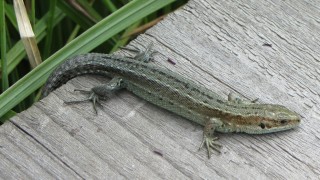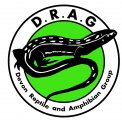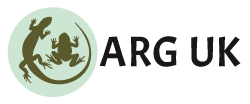About us
About Us
Welcome to the Devon Reptile and Amphibian Group (DRAG) website.

Who are we?
We are a friendly, volunteer led group who have a passion for reptiles and amphibians and a willingness to share this passion, knowledge and experience with others.
We are made up of individuals with a variety of backgrounds and interests, from those with a general interest in the natural world to experienced herpetologists, ecologists and conservationists.
What do we hope to achieve?
Here are some of the group’s key aims and objectives:
- To identify and protect important reptile and amphibian sites in the county of Devon
- To support partner groups and organisations in conserving these sites
- To better understand species distributions, populations and potential negative trends and to help mitigate or reverse those trends
- To promote conservation through education and public engagement
- To collect and submit data to Devon Biodiversity Records Centre (DBRC)
How do we achieve this?
- Through monitoring and surveying of known sites
- Through visiting potential sites of interest
- By working along with landowners and organisations in providing advice and consultations on habitat management and species monitoring
- By encouraging everyone to report sightings of reptiles and amphibians on Record Pool either using the Devon Reptile and Amphibian Group (DRAG) website (under the 'Record a sighting' tab) or by visiting https://www.recordpool.org.uk.
- By holding events and by providing resources that aim to raise awareness and educate people about these amazing animals and their habitats
- By recruiting more members
News
News
Yarner Wood Spring Woodland Festival
A sunny day was enjoyed by all at the Yarner Wood Spring Woodland Festival yesterday, near Bovey Tracey. A huge thanks to DRAG Volunteers Stephen, James, Jette and Steve for giving up their Saturday to raise the profile of reptiles and amphibians to young families attending the festival. Our DRAG stand was a hub of face-painting, card-snake and origami-frog making activity. We had guest appearances by frog tadpoles, newt larva, adult male palmate newt and a large female toad from a pond nearby. Pond-dipping excursions, to a pond 10minutes walk away, were rewarded with frog tadpoles, caddisfly larvae, mayfly larvae, damselfly adult and larvae, whilst being serenaded by wood warbler, blackcap and greater spotted woodpecker. Thanks to Natural England’s Andy Bailey for inviting DRAG to attend such a lively event where over 500 people were estimated to have attended, of which 33 attended our busiest pond-dipping session so far!
See photos in the Gallery.
Mabel Cheung
Sand lizard pics
Thanks to Steve for leading a successful sand lizard survey and walk for DRAG members. Please check out the Gallery for Stacey Thew’s cracking photos. If you want to hear about walks and events, please email us to be added to the DRAG email list on devonrag@hotmail.com.
Mabel Cheung
Great crested newting
Please see our Gallery for shots from our great crested newt training sessions and recent surveys.
Although we have just passed the peak of the survey season for great crested newts, or ‘Cresties’ as they are affectionately known, we would still be keen to hear about new sites where they occur. In particular, we’d love to hear from landowners who are able to let us survey their sites.
Please forward the location, post code and date for the sightings (plus your contact details) to DBRC preferably by email DBRC@dbrc.org.uk (or call 01392 274128). There is also an online recording form at http://www.dbrc.org.uk/. Click the ‘Send us your wildlife records' box on the left-hand side of the screen.
Mabel Cheung
Great crested newt training course update
Where better to run a great crested newt training course than in Newt-on Abbot?! Thanks to Nicky Green (Green Ecology) for organising the comprehensive indoor and outdoor training course and Stephen Carroll (Teignbridge District Council) for his policy talk and providing the venue and to the enthusiastic attendees. Funds raised by the course will go towards DRAG and great crested newt surveys to improve our knowledge of their distribution in Devon. Many of the attendees have kindly volunteered to survey for great crested newts this spring to verify previous sightings and find new sites. As great crested newts are most active during the darkest hours of the night, it is believed they are perhaps just under recorded and may be more widespread than previously thought.
We were very lucky with the weather and attendees put their new skills to the test with positive results. We managed to find signs of breeding great crested and palmate newts, such as eggs within folded leaves. The newts in their aquatic breeding phase were well adapted to move quickly through the water. At night we waited patiently to get a glimpse of newts coming up for air at the water’s surface and some were lucky to get views of newts doing their underwater courtship dance. With Nicky as our licensed trainer, we were able to catch great crested newts and learn how best to handle these delicate creatures. On the second weekend we caught two females and two males and were able to gently turn them over to behold their striking orange and black bellies – which are like fingerprints unique to each individual.
If you think you have seen a great crested newt (see the photos in our Photo Gallery and our ‘Wanted poster’) please forward the location, post code and date of the sightings (plus your contact details) to the Devon Biodiversity Record Centre preferably by email DBRC@dbrc.org.uk (or call 01392 274128). There is also an online recording form at http://www.dbrc.org.uk/. Click the ‘Send us your wildlife records' box on the left-hand side of the screen.
Best wishes
Mabel Cheung
Publicity Officer
DRAG AGM Summary at Living Coasts, Torquay
Thanks to all who attended the AGM!
We had a good turn out, for the AGM proper and the great crested newts (GCN) meeting. Headline notes were that we still need keen volunteers to help with organising DRAG such as Events Officer and Secretary. We also discussed the toads project and GCNs. At the moment, DRAG has not charged either membership fees and, rarely, for events. There was some discussion on whether this should change as DRAG has a poor income stream which puts the Group at a disadvantage for future events and conservation projects. We are also looking at improving DRAG web presence, such as setting up a Facebook page.
A big thanks to Tracey Hamston and Living Coasts for organising the venue. We benefitted from a lunchtime grand tour of the site, met chough, rays, seahorses and seals and learnt about some of their captive breeding successes, eg for penguins.
I'm looking forward to another year of surveys and events - and hope to see you there!
Please get in touch if you want to help volunteer or find out more.
Best wishes
Mabel Cheung
Publicity Officer
Resources
Resources
Introduction to Reptile Identification and Surveying
Adder Bites - Helpful Links
Dogs and Adders
Dogs 'n' Adders - Information Leaflet
Snakes in Gardens
Snakes are fascinating creatures and for many, finding one in the garden is a real treat and a memorable experience.
However, for many others this can be a disconcerting and even worrying situation. This can be as a result of misunderstandings often fed by negative and often inaccurate media reports and rumours. Please be assured, though, that there is no reason to worry and that these situations can be resolved fairly easily.
The vast majority of reported snake sightings in gardens turn out to be either a Grass Snake or a Slow worm (a legless lizard which resembles a snake). Both species are harmless and are best left alone.
We only have one venomous snake species, the Adder, which is rarely found in gardens unless your property is situated close to favourable habitat. Even then, the adder is a very shy animal and avoids human activity whenever it can. Again, the best course of action is to leave it alone and allow it to move off when it’s ready. The likelihood is that it is just passing through anyway.
Occasionally, DRAG gets asked about relocating snakes. For all kinds of practical reasons this isn’t something we would do and would actually be the opposite of what our group encourages which is reptile conservation.
The best recommendation we can provide is to learn as much as possible about the reptile you have seen in your garden. We will happily help you identify it and provide related advice such as understanding which features of your garden have likely attracted it in the first place.
Please don’t hesitate to get in touch and send a photo or description of the snake to devonrag@hotmail.com or to our Facebook group at http://www.facebook.com/groups/DevonARG/.
It would really help if you could record your sighting on Record Pool either using the Devon Reptile and Amphibian Group (DRAG) website (under the 'Record a sighting' tab) or by visiting https://www.recordpool.org.uk.
Please remember that reptiles are protected under UK law.
Species Guides
Species Guides
Devon's Reptiles
In the UK we have 6 native reptile species, each of which can be found in Devon.
To find out more about a particular species click on it's name which will then jump to the relevant information.
Adder Vipera berus
Grass Snake (or Barred Grass Snake) Natrix helvetica
Smooth Snake Coronella austriaca
Slow Worm Anguis fragilis
Viviparous (or Common) Lizard Zootoca vivipara
Sand Lizard Lacerta agilis
Devon's Amphibians
In the UK we have 7 native amphibian species, 6 of which can be found in Devon.
To find out more about a particular species click on it's name which will then jump to the relevant information.
Great Crested Newt (Triturus cristatus)
Smooth Newt (Lissotriton vulgaris)
Palmate Newt (Lissotriton helveticus)
Common Toad (Bufo bufo)
Natterjack Toad (Epidalea calamita)
Common Frog (Rana temporaria)
For information on the adder please click on the fact sheet link in blue or you can watch the animated video below.
Grass Snake Natrix helvetica
Tadpoles
We've all seen them right, often in large numbers early in the year in even the smallest bodies of water ..... but what are tadpoles?
Tadpoles are the larval stage in the life cycle of an amphibian. In the UK the tadpoles we most often encounter will belong to the Common frog (Rana temporaria) or Common toad (Bufo Bufo).
Amphibians go through several stages before reaching their adult form. This incredible process is known as metamorphosis. Below is a video showing in detail how this process takes place.
Membership
Membership
Why become a member?
Well, big things start in small ways and becoming a member of the Devon Reptile and Amphibian Group (DRAG) is one step you can take towards protecting the reptiles and amphibians in your local area and beyond.
Whether you’re dropping us a line by email, submitting a photo or participating as a volunteer in a reptile or amphibian survey your contribution is valued all the same. Everything we can do to keep the ‘conversation’ going is great for the reptiles and amphibians of Devon.
The more members that join the greater the potential for activity. Put simply, without members we couldn’t do what we do and it would be great to have you join us.
Membership benefits:
- · Become part of a group of like minded individuals and keep in touch via social media or email
- · Invitations to events, training and volunteering opportunities
- · A quarterly newsletter
- · Opportunities to see and work with elusive and hard to find species
- · Opportunities to learn new skills
- · Gain practical experience in conservation
- · The opportunity to have a positive, lasting impact on Devon’s wildlife
Some of the activities that you will be invited to can include talks by local experts, guided walks, bioblitzes and even species identification and survey skills training.
Opportunities for volunteering could include surveying, habitat management or helping out at nature festivals.
Have a voice in what we do.
We value your feedback and encourage it.
For example:
- · Do you have an idea for an event or training?
- · Is there a site near you that we are unaware of?
Drop us a line and let us know at devonrag@hotmail.com.
How do I join?
If you would like to become a member please send your request by email to devonrag@hotmail.com.
FAQ
- · Question: How much does membership cost?
Answer: Membership is free to join.
- · Question: How long will my membership last?
Answer: Currently, membership is on a rolling annual basis.
- · Question: Do I need special knowledge, qualifications or experience to become a member?
Answer: No. There are no prerequisites, nor is there any minimum level of commitment required.
- · Question: Can I be a member but not volunteer?
Answer: Yes. Whilst volunteering makes a big difference to what we do, we totally understand that not everyone’s circumstances allow for it.
- · Question: How do I cancel my membership?
Answer: You can cancel your membership at any time by sending your request to devonrag@hotmail.com.
Photo gallery
Photo Gallery
Contact us
Contact Us
If you want to join DRAG and our email group, or have a general query, please contact a member of DRAG admin:
Please be patient with us, this email address is not checked every day!
Upcoming Events
Upcoming events will be listed here.
Latest News
- A tale of six lizards
25/07/2021 1:49 pm - Upcoming Talk
15/02/2016 3:22 pm - Reptile Training Oppourtunity
28/04/2014 9:40 am - DRAG great crested newt training courses delivers the goods
23/05/2013 10:46 pm - Sand lizard summary and pics
09/05/2013 10:23 pm
© Devon Reptile & Amphibian Group (DRAG)
Website hits: 71307
View All | Find out how to get a mini-website for your ARG
© ARG UK Local Groups mini-websites 2025
Wind powered websites by Aye-aye Design.

